Crossing Into “Uncomfortable”
I’ll be honest, I hesitated before writing this. Frazzledad.com isn’t usually a space for politics or world affairs. Most weeks, I’m writing about the quirks of parenting, the looming specter of retirement, or the latest road trip misadventure. But sometimes, life refuses to stay in tidy boxes. Sometimes the world pushes through your door whether you want it to or not. Like genocide in Gaza.
For many months, I’ve read stories of families displaced, neighborhoods reduced to rubble, and children carrying grief far too heavy for their small shoulders. I’ve listened to leaders issue carefully worded statements that dance around reality. And the word that keeps coming back to me, no matter how uncomfortable it feels, is genocide. It’s not a word I use lightly, but after enough days staring at the news in disbelief, I can’t call it anything less.
Around our house, this hasn’t been background noise. Sometimes it’s been front and center. Heather, and I have always tried to raise our kids to think critically, to weigh perspectives, and to never be afraid of difficult conversations. Lately, those conversations have circled back to Gaza again and again. They’ve been hard, sometimes frustrating, but also necessary.
And here’s the thing: if I expect my kids to wrestle with hard truths, then I can’t shrink from them myself. Silence may be easier, but it isn’t honest. So this post is my attempt to speak, however imperfectly, about a situation that feels impossible to ignore.
The Dinner Table as a Classroom
Our dinner table has always been more than a place to eat. Sure, there’s the usual teenage banter, inside jokes, and the occasional eye roll when I start sounding too much like, well, Dad. But it’s also where some of our deepest, most important conversations happen.
Heather and I decided early on that we didn’t want our kids growing up afraid to ask questions or to challenge ideas. If they’re going to head out into the world with their own heads screwed on straight, they need to know how to think, not just what to think. So dinnertime tends to feel more like unstructured debate minus the podiums, plus a lot more pasta.
It’s not about us delivering lectures. Quite the opposite. Some of the best moments are when Zachary or Beth-Rose ask a question that challenges, or point out a contradiction I hadn’t noticed. I love those moments, even when they’re uncomfortable, because they mean our kids are really engaging, really thinking.
Power and the Human Cost
Lately, Gaza has engaged those conversations. An event or hard news story gets brought up, and sooner or later someone says, “How can this still be happening?” From there, we wrestle. We talk about history, about power, about the human cost. We talk about how media in different countries frame the same events in completely opposite ways. And we talk about the children, because no matter what else you say, it’s kids who always bear the weight of war the most.
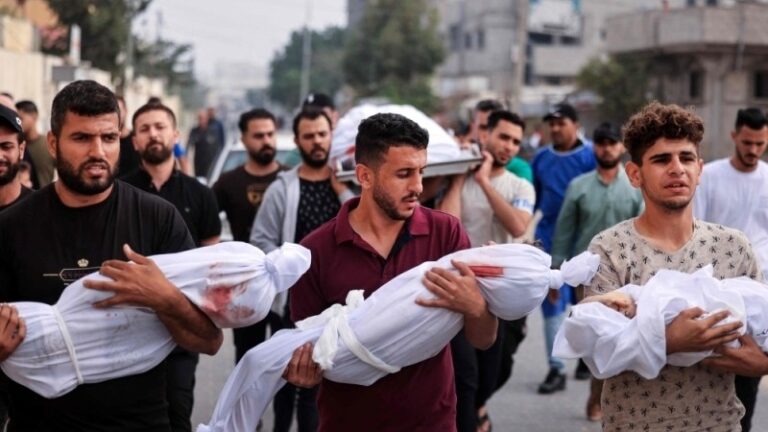
Sometimes the conversation ends in silence, because there are no neat answers. Sometimes it ends in frustration, because the world feels too broken. But always, I come away grateful that my family doesn’t look away. They don’t numb out or shrug it off as “just politics.” They care. They’re learning to hold complexity, and to sit with the discomfort that comes from trying to understand.
That, to me, is the best kind of classroom. And it’s why I can’t just treat Gaza as something distant and abstract. Around our table, it’s already personal. And I really hope that, around yours, it feels the same way.
What We See in Gaza
When my family and I talk about Gaza, it’s not abstract. We’re not trading trivia about a far-off place. We’re watching, almost in real time, entire neighborhoods flattened, families displaced, children orphaned. It’s impossible to process it all without feeling some mixture of rage, grief, and helplessness.
The word that keeps coming back to me is genocide. And yes, I know that’s a loaded word. Some people will shut down the second they hear it. But look at the pattern: entire populations uprooted, civilian infrastructure destroyed, basic necessities like water, food, and medical care deliberately restricted. People penned in with no safe place to go. That’s not “collateral damage.” It’s not “unfortunate consequences of war.” That’s the systematic destruction of a people.
And yet, the official responses from governments we’re supposed to look to for moral leadership are tepid at best. They call for “restraint,” for “temporary pauses,” for “de-escalation.” They dance around the reality while bodies pile up. The U.S. sends weapons. Canada sends words. Europe splits the difference. No one wants to say the obvious, because the political cost is too high. Meanwhile, the human cost is unbearable.
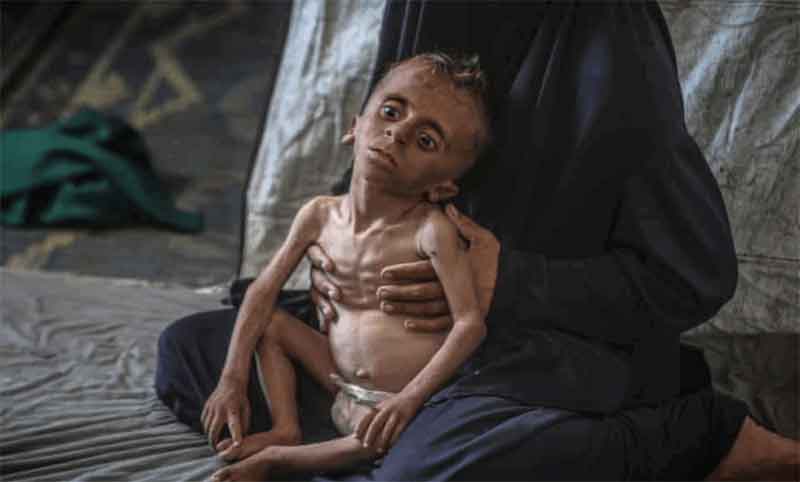
A Double Standard
This is what frustrates me the most. We’re told to believe in democracy, in human rights, in freedom and dignity. But those values seem to collapse the second they’re applied to Palestinians. Imagine for a moment if this scale of devastation were happening in, say, Ukraine. Would the global response be the same? Of course not. We’d see outrage, sanctions, massive aid packages, and leaders falling over each other to condemn it. The double standard is glaring, and it teaches our kids that human rights are apparently conditional, depending on who you are and where you live.
And it isn’t just politicians. The media plays its role, too. I’ve seen headline after headline that frames this as a “conflict,” as though two equal sides are battling it out. But that’s not what’s happening. This isn’t a war between armies. Israel has one of the most advanced militaries in the world raining destruction on a trapped civilian population. Pretending otherwise is dishonest.
Gaza Genocide is Happening
When we talk about this at our table, our kids sometimes ask the questions I can’t fully answer: “How can this go on while the world sees it in real time?” “Why don’t more leaders call it what it is?” “If this is wrong, why does it keep happening?” And I sit there, trying to give them something, anything that sounds hopeful. But most days, all I can say is: people are afraid to speak the truth when the truth threatens power.
That’s why silence feels like complicity. If governments won’t name it, and most mainstream media won’t frame it honestly, then the least I can do is speak plainly in my own small corner of the world. Gaza isn’t just another news cycle. It’s a catastrophe we’ll be judged by in history, and one that should already be shaking us awake right now.
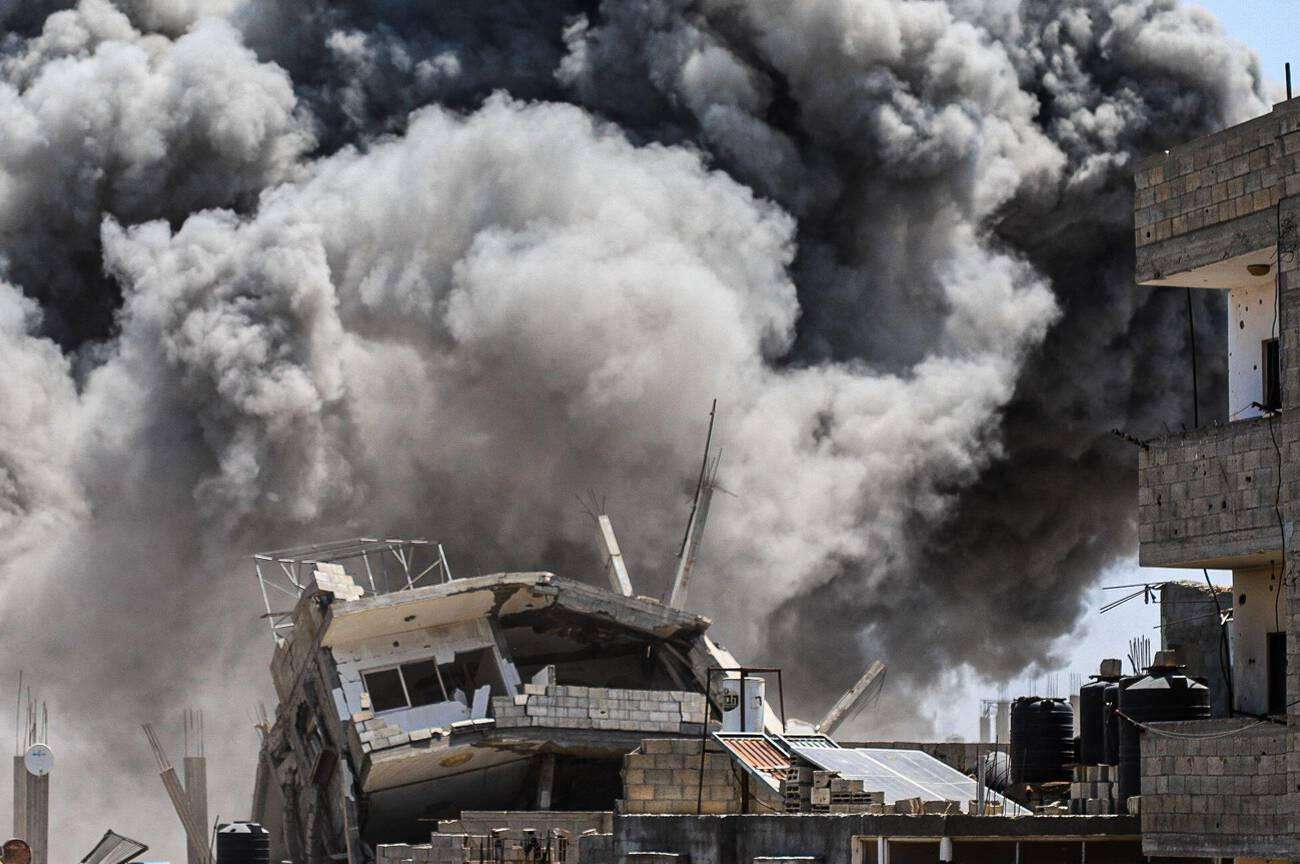
The Elephant in the Room: Israel
Let’s address the obvious: you can’t talk about Gaza without talking about Israel. But here’s where the conversation gets tricky, and where critics are too often silenced. Because the minute you challenge the policies of the Israeli government, someone is quick to equate that with antisemitism. And that’s not only unfair, it’s deeply dishonest.
So let me be clear: my critique is of the Israeli government and its actions, not of Jewish people as a people, a faith, or a culture. Israel is not synonymous with Judaism, just as no government is synonymous with the people it governs. To say otherwise is to collapse an entire group of diverse individuals into a single political entity; and that kind of thinking is the very definition of prejudice.
The government of Benjamin Netanyahu has pursued policies that, in my view, directly perpetuate this humanitarian disaster. The ongoing blockade of Gaza, the expansion of settlements in the West Bank, the routine use of overwhelming military force; these are not unfortunate accidents, they are deliberate choices. Choices made by leaders who prioritize control over peace, and power over justice.
Holding Israel Accountable
Criticizing these policies is not antisemitism. It is the same as criticizing any government when it violates human rights. I can condemn the actions of my own government without hating Canadians. I can reject U.S. foreign policy without hating Americans. The same logic applies here.
What frustrates me further is the way global powers have tiptoed around holding Israel accountable. When Russia invaded Ukraine, the world responded with swift outrage and sanctions. When Israel bombs schools and hospitals, the response is muted calls for “restraint.” This double standard is glaring, and it erodes the credibility of every government that claims to stand for universal human rights.
Now, does Hamas bear responsibility for violence? Absolutely yes. But acknowledging that does not erase the fact that Israel, as the vastly more powerful actor, holds overwhelming responsibility for the scale of destruction in Gaza. To frame this as a war between equals is to ignore reality. One side is trapped, starving, and bombed relentlessly. The other controls the borders, the airspace, the resources, and the narrative.
And let’s say this out loud, because it matters: rejecting the policies of the Israeli government is not rejecting Jewish people. In fact, many Jewish voices around the world – rabbis, activists, ordinary citizens – have spoken out against this violence, insisting that “Never Again” means never again for anyone. They, too, are smeared or silenced for daring to dissent.
That, to me, is the heart of it: solidarity with Palestinians does not mean hostility toward Jews. It means holding a government accountable for its actions, the same way we should hold any government accountable when it tramples on human rights.
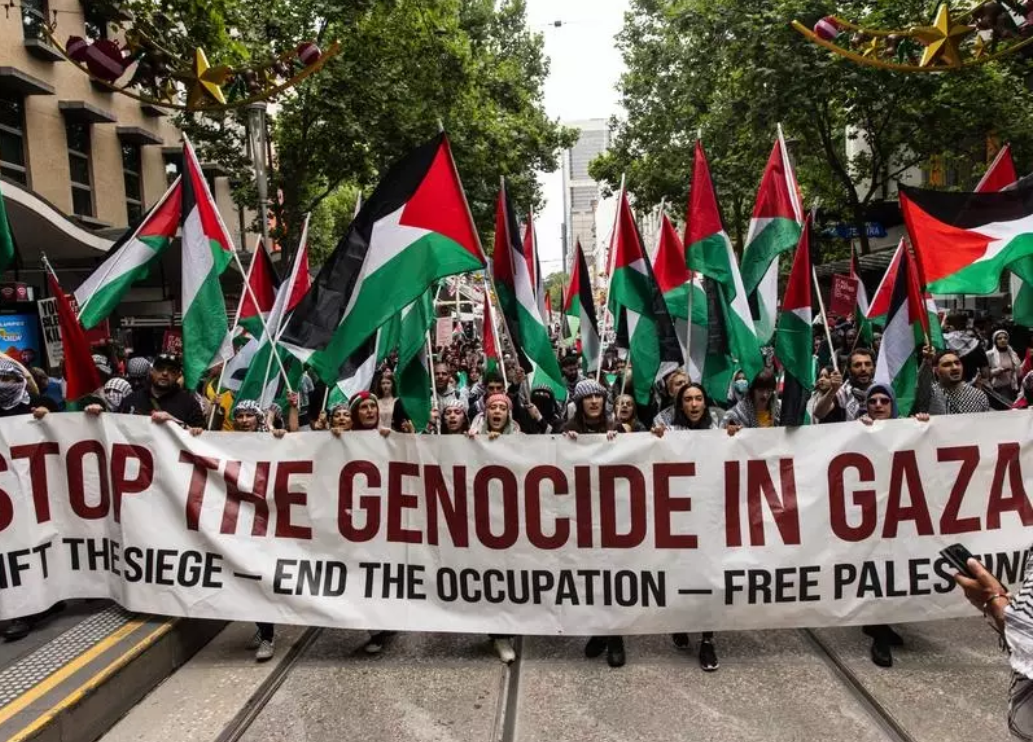
A Tale of Two Histories: Independence and the Nakba
When we talk about Israel and Gaza today, we’re really talking about the echoes of 1948. For Israelis, that year is remembered as the birth of independence; the fulfillment of a dream after centuries of persecution, pogroms, and, most horrifically, the Holocaust. For Palestinians, that same year is remembered as the Nakba, which means “catastrophe.”
Two words for the same moment in history. Two radically different experiences.
For Jewish communities around the world, Israel’s creation was a triumph, a place where a people long denied safety could finally claim a homeland. The world, reeling from the Holocaust, largely embraced this narrative. Western powers applauded. Many saw it as justice delayed but finally delivered.
But for Palestinians, independence for one people meant dispossession for another. More than 700,000 Palestinians were expelled or fled from their homes. Hundreds of villages destroyed or emptied. Families that had lived on the land for generations suddenly found themselves refugees, pushed into camps across Gaza, the West Bank, Lebanon, and beyond. The dream of one people became the nightmare of another.
The Trauma of the Nakba
And here’s the uncomfortable truth: both stories are real. Both contain suffering, longing, and injustice. But over time, only one is widely recognized in the halls of power. Israel’s independence is celebrated; the Nakba is often ignored, dismissed, or denied altogether.
Why does this matter in 2025? Because the unresolved trauma of the Nakba never went away. Palestinians didn’t simply vanish. Their refugee status, passed down through generations, became a permanent feature of the Middle East. And Israel, instead of reckoning with this dual history, doubled down on policies of exclusion: occupation, settlement expansion, and the ongoing control of Palestinian lives.
This is what many human rights organizations, including Israeli ones like B’Tselem, now call apartheid; a system where two groups of people live under fundamentally unequal laws, rights, and opportunities. In the West Bank, settlers and Palestinians live side by side, but one group enjoys full citizenship, roads, and protections, while the other is restricted, surveilled, and displaced. In Gaza, Palestinians are caged in a strip of land barely habitable, subject to blockades and bombardment.
Ethnic Cleansing
When I call this ethnic cleansing, I don’t do so lightly. It may not look like the sudden, overt expulsions of 1948, but it’s a slower, grinding version: house demolitions, land seizures, laws that privilege one ethnicity over another, and murder. The effect is the same; the systematic removal of a people from their land.
At our dinner table, when we’ve talked about this history, my kids have asked, “Why didn’t the world do anything back then?” And the sobering answer is that many countries did see what happened in 1948, but chose to look away. The plight of Jewish refugees after the Holocaust carried more moral weight in Western eyes than the displacement of Palestinians. That imbalance has never been corrected.
Today, the same pattern repeats: one people’s security is prioritized at the expense of another’s survival. And the world, again, mostly looks away.
Teaching Critical Thinking in a World of Spin
One of the hardest parts of talking about Gaza and Israel isn’t just the violence itself, it’s the way the story gets told. Depending on which news outlet you follow, you’d think you were looking at two completely different conflicts. Some headlines frame it as a “clash” or “escalation,” as though two equal sides are duking it out. Others lead with “Israeli security” and bury Palestinian suffering at the bottom of the page. It’s no wonder so many people throw up their hands and say, “It’s too complicated.”
But that’s exactly why we’ve always tried to teach our kids not to stop at the headline. In our home, it’s normal to hear someone ask, “Who’s writing this story, and what do they want me to believe?” This isn’t cynicism, it’s critical thinking. Every news story has a frame. The trick is recognizing it.
Take the Nakba, for instance. In Israeli textbooks, it’s often left out entirely, or softened into something like “many Arabs left their homes.” In Palestinian accounts, it’s described as forced expulsion, mass violence, and catastrophe. Both versions tell us more about the perspective of the storyteller than the bare facts of history. If you only ever read one side, you’ll never see the whole picture.
Allowing For Complexity
That doesn’t mean we have to treat every narrative as equally valid. Some frames distort reality beyond recognition. But it does mean we have to allow for complexity. Yes, Jewish people suffered horrifically before and during the Holocaust, and the longing for a homeland was real. Yes, Palestinians were displaced, dispossessed, and continue to live under occupation. Both things are true. And if someone insists you can only acknowledge one truth at a time, that’s a red flag.
Sometimes I’ll catch myself in my own biases. I’ll react to a headline with frustration, and a part of me will push back: “But dude, aren’t you doing the same thing you’re accusing the media of?” And it’s true. None of us are immune. Which is why we need each other to keep asking questions, to hold up mirrors, and to remind ourselves that empathy is not a finite resource.
If we can do that around our dinner table, maybe we can do it in our politics, too. The world doesn’t need more people choosing sides blindly. It needs more people willing to wrestle with uncomfortable truths, even when they don’t fit neatly into a headline.
The Cost of Silence
I’ll admit, I wrestled with whether to write this at all. This has never been a political blog. It’s a place where I’ve shared stories about parenting, family, retirement, and travel. It’s a space where readers come, I think, for reflection, humor, and maybe a bit of solidarity in the chaos of everyday life. Did I really want to drag Gaza into this?
But the longer I sat with it, the more I realized that not writing about it would feel dishonest. In our house, this issue has been unavoidable. It’s filled our conversations, shaped our questions, and left a heaviness we can’t just shrug off. If I ignored it here, I’d be sending a message; to my readers, yes, but especially to my kids, that some truths are too risky to say out loud.
That’s the cost of silence: it teaches complicity. It tells the powerful that their actions can continue unchecked, because ordinary people won’t speak up. It tells our children that values like justice and empathy are fine in theory, but optional in practice. And it gives cover to those who benefit from the status quo.
Not Just Background Noise
Of course, I know speaking up won’t change government policy. My little blog won’t stop bombs from falling or reopen a sealed border crossing or get aid to the people who need it. But that’s not the point. The point is integrity. The point is refusing to pretend this catastrophe is just another piece of background noise.
There’s also the personal risk: some readers may unsubscribe. Some may accuse me of “stepping outside my lane.” But you know what? If my lane is only safe enough for failed travel and sentimental parenting stories, then it’s not really my lane at all. Because my lane is honesty. My lane is raising kids who can think critically and compassionately. And my lane is using my voice, however small, to say what I believe to be true.
History is full of moments when silence carried a greater cost than speaking. Gaza, to me, is one of those moments. I don’t want my kids looking back one day and asking why we all looked away. I want them to know that even in a small, imperfect way, their dad tried to speak.
A Call to Reflection
I don’t expect everyone who reads this to agree with me. In fact, I’d be surprised if everyone did. Gaza is complicated, messy, painful, and people carry their own histories and emotions into how they see it. But here’s what I do hope: that you won’t look away. That you’ll sit with the discomfort, ask hard questions, and wrestle with the contradictions instead of turning the page and moving on. And for God’s sake, talk about it!
Around my family’s dinner table, we don’t end every conversation with answers. But we never end with indifference. That, to me, is the worst option of all.
If you’ve made it this far, I’d ask one simple thing: share this. Pass it along to a friend, a colleague, a family member. Start a conversation. Not because my words are perfect – they’re not – but because silence is what allows injustice to thrive. And conversation, even messy conversation, is the beginning of change.
I’d also love to hear from you. Comment, write back, argue with me if you feel I’m wrong. Tell me where you agree and where you don’t. Positive or negative, it doesn’t matter. What matters is engagement, connection, the willingness to think this through together. That’s the only way we move past slogans and soundbites into something more human.
At the end of the day, my lane isn’t politics or punditry. My lane is honesty, family, and the conviction that our voices, however small, still matter. This is mine. What’s yours?


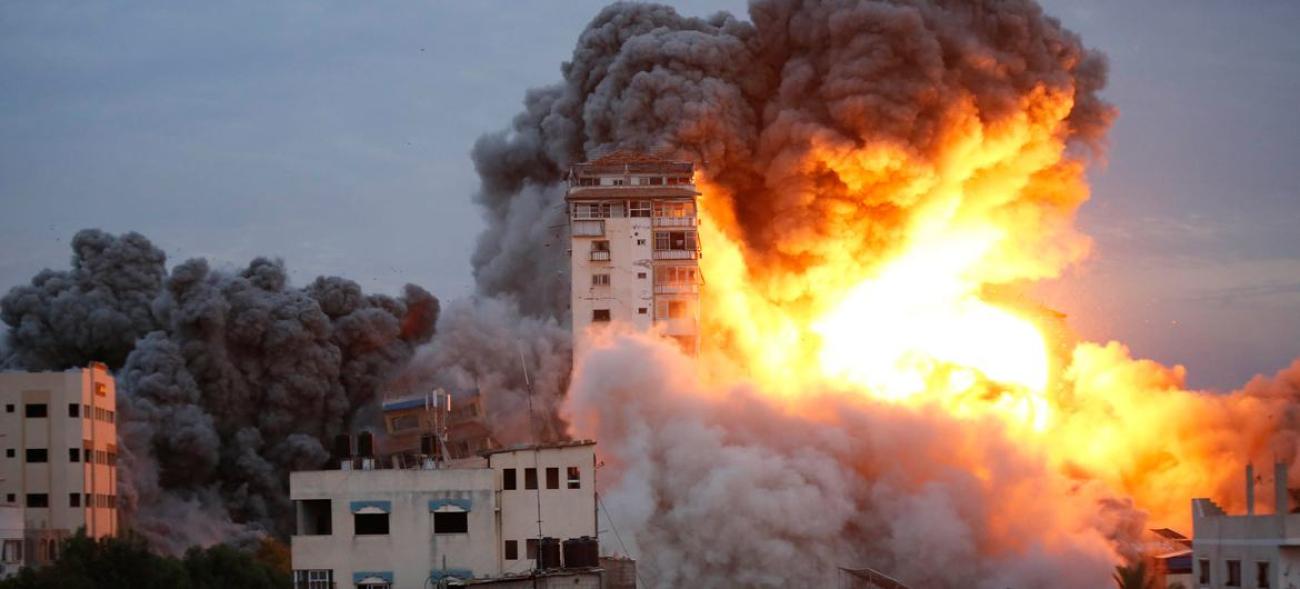

What strikes me hardest about the Israelis Palestinian conflict is how a victim (Israelis) can become the perpetrators of genocide. We are all capable of becoming victims, and perpetrators. Beware the growing fascism to our south and the world. It can happen in Canada.
The League of Nations and The United Nations were both born after great slaughters. Both held that “ No state, regardless of how powerful it may be, has the authority to annex another state.“. This should be the line in the sand for all of us.
Well expressed, Michael. It’s shameful that Western liberal Democracies, which constantly proclaim their civility, have helped the IDF and the nihilists who now govern Israel to massacre Palestinians, raze their cities and steal their land. They’ve done this through their collective silence. Canada is among the worst offenders, in my opinion. The United Nations declared Jewish settlements on Palestinian land illegal decades ago, but thanks to unqualified US support and its UN Security Council veto, Israel does whatever it wants in the region… laws, morality and decency be damned. Thanks for taking a position that is on the right side of history.
Hi Michael, on my very first working trip to Israel in 1972 the first thing I noticed was there was not one person I met who had not lost their whole family or some relative in the Holocaust. Many of the people I worked with bore the tattoos from concentration camps . It was’nt shoved in your face, they bore their pain with a brave and stalwart outlook. As each year I flew into to Israel, I noticed on the aircraft’s final approach the countryside was getting greener and greener. In fact blossoming. The Israelis were, with very clever irrigation techniques claiming the land back from the desert. I was very lucky, as most times I got to sit in the jump-seat so had a perfect aerial view.
I was so impressed with everything the Israelis achieved in everything they turned their minds to. It always felt like such an honor to be there.
With the Israeli purge of Gaza, the running off at gunpoint of Palestinian farmers from their land in the West Bank by extremist settlers stealing the land and burning their olive groves, all under the eyes off the military, Israel has not quite done with there own private holocaust. This has been going on since 1967 but was kept very hush hush in Israel, and described as ” unusual, but isolated incidents ”
Jared Kuschner said that Gaza was the most desirable Mediterranean seafront ready for development. Trump said that the Palestinians should be relocated and split up amongst the various Arab nations, Gaza bulldozed flat ready for redevelopment.
So what chance do the Palestinians have with such despicable actions and thoughts like these. As you wrote, the world looks on says ” Naughty Naughty ” but does nothing.
Sadly the Palestinians continue to face an uphill battle to get the recognition and security they deserve. Israel continues to play the “victim” card, at the expense of human beings. And the rest of the world is complicit. Israel has become a rogue state, with a leader willing to create atrocities against those he deems unfit for humanity. Shameful!